Understanding Risks and Safety Measures
Lisinopril is a widely prescribed medication for managing hypertension, heart failure, and kidney diseases. While effective in controlling blood pressure and cardiovascular conditions, combining it with alcohol can pose serious health risks. This article explores the interactions between alcohol and Lisinopril, provides safety guidelines, and helps patients make informed decisions about alcohol consumption during treatment.
Overview of Lisinopril and Its Use
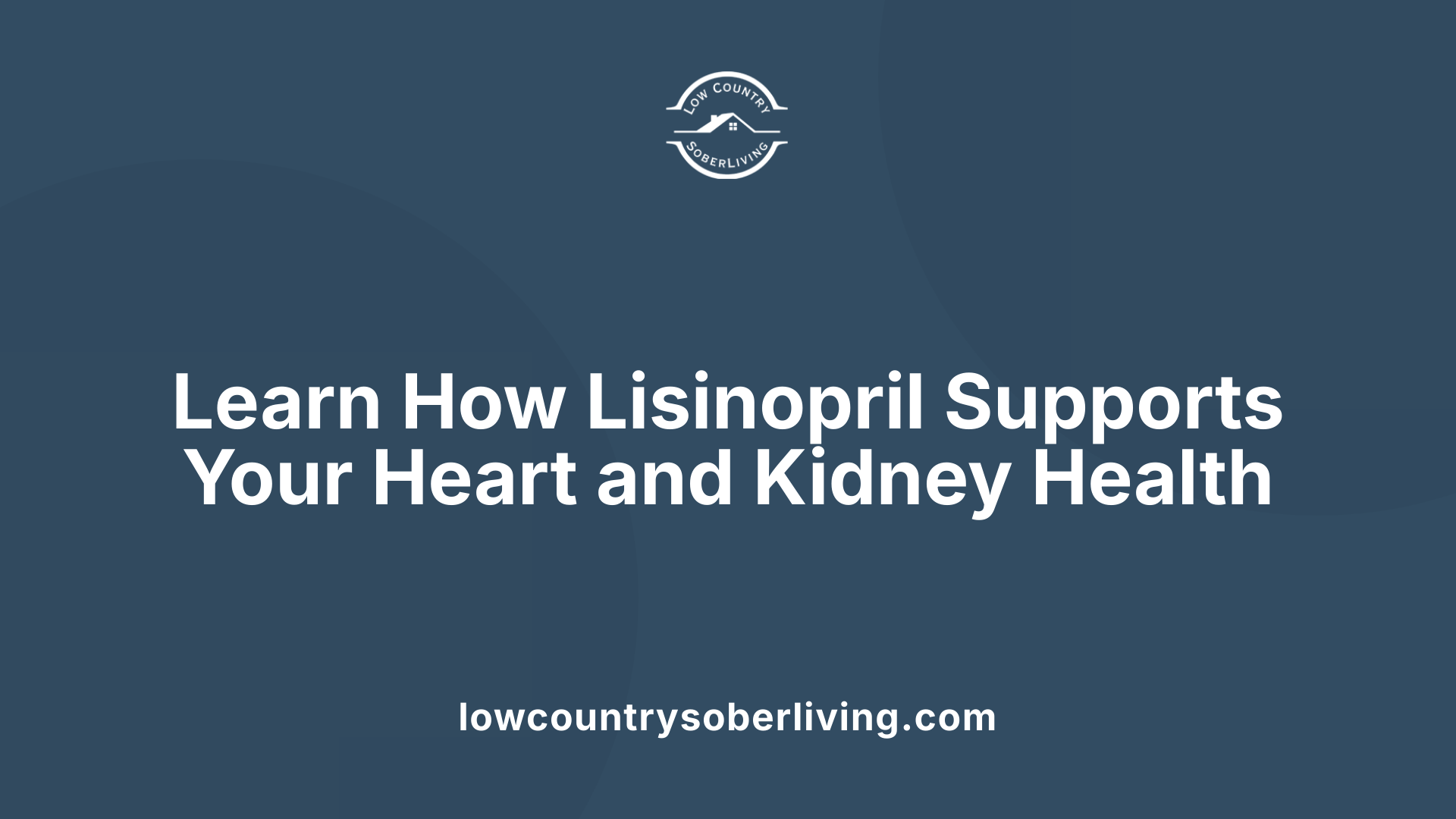
What is Lisinopril and what conditions is it prescribed for?
Lisinopril is an essential medication that belongs to the class of drugs called ACE inhibitors. It is primarily prescribed to lower high blood pressure (hypertension), to treat heart failure, and to protect kidney function in patients with diabetes. By relaxing blood vessels, Lisinopril makes it easier for the heart to pump blood, which helps reduce the risk of heart attacks, strokes, and kidney damage.
How does Lisinopril work?
Lisinopril works by inhibiting the enzyme responsible for converting angiotensin I to angiotensin II, a compound that narrows blood vessels. This inhibition relaxes the arteries and veins, effectively lowering blood pressure and easing the workload on the heart. It also helps prevent further damage to the kidneys in diabetics, making it a vital part of managing cardiovascular and renal health.
Common side effects of Lisinopril
Most users experience mild side effects such as headache, dizziness, dry cough, fatigue, nausea, abdominal pain, diarrhea, and rash. Dizziness and lightheadedness are especially common when starting the medication or increasing the dose.
In some cases, more serious reactions might occur, including allergic responses, swelling around the face or throat (angioedema), or elevated potassium levels. Patients with a history of swelling or allergic reactions should avoid using Lisinopril.
Risks of combining Lisinopril with alcohol
While Lisinopril and alcohol do not directly interact chemically, combining them can significantly affect health. Alcohol can increase the blood pressure-lowering effects of Lisinopril, potentially causing dangerously low blood pressure, dizziness, fainting, and increased risk of falls or injuries.
Additionally, alcohol acts as a diuretic, increasing the risk of dehydration and kidney stress when taken with Lisinopril. It can also interfere with how the medication is metabolized in the liver, possibly diminishing its effectiveness or heightening side effects.
Heavy or binge drinking can paradoxically raise blood pressure, counteracting Lisinopril’s benefits and leading to complications like irregular heart rhythms or even severe health crises.
Why should patients seek medical advice?
Individuals on Lisinopril are advised to consult their healthcare provider before drinking alcohol. Abstaining from alcohol altogether is safest, especially for those with cardiovascular or kidney issues. If moderate drinking is considered, it should be limited—typically to no more than one to two drinks per day—and always discussed with a doctor.
In case of any adverse symptoms such as severe dizziness, swelling, chest pain, or jaundice, immediate medical attention is crucial.
| Aspect | Details | Additional Notes |
|---|---|---|
| Medication name | Lisinopril | ACE inhibitor used for blood pressure & heart health |
| Primary conditions treated | Hypertension, Heart failure, Diabetic kidney disease | Helps relax blood vessels |
| Main side effects | Headache, dizziness, dry cough, fatigue, nausea | Usually mild, but serious reactions need medical care |
| Effect of alcohol on medication | Can cause blood pressure fluctuations, dehydration, and kidney strain | Avoid alcohol while on treatment |
| Recommendations | Consult healthcare provider, limit alcohol intake, monitor side effects | Never combine without professional guidance |
This overview highlights the importance of understanding how Lisinopril functions in managing health and the risks associated with alcohol consumption during treatment. Always prioritize medical advice to ensure safe and effective use of medication.
How Alcohol Impacts Lisinopril's Effectiveness
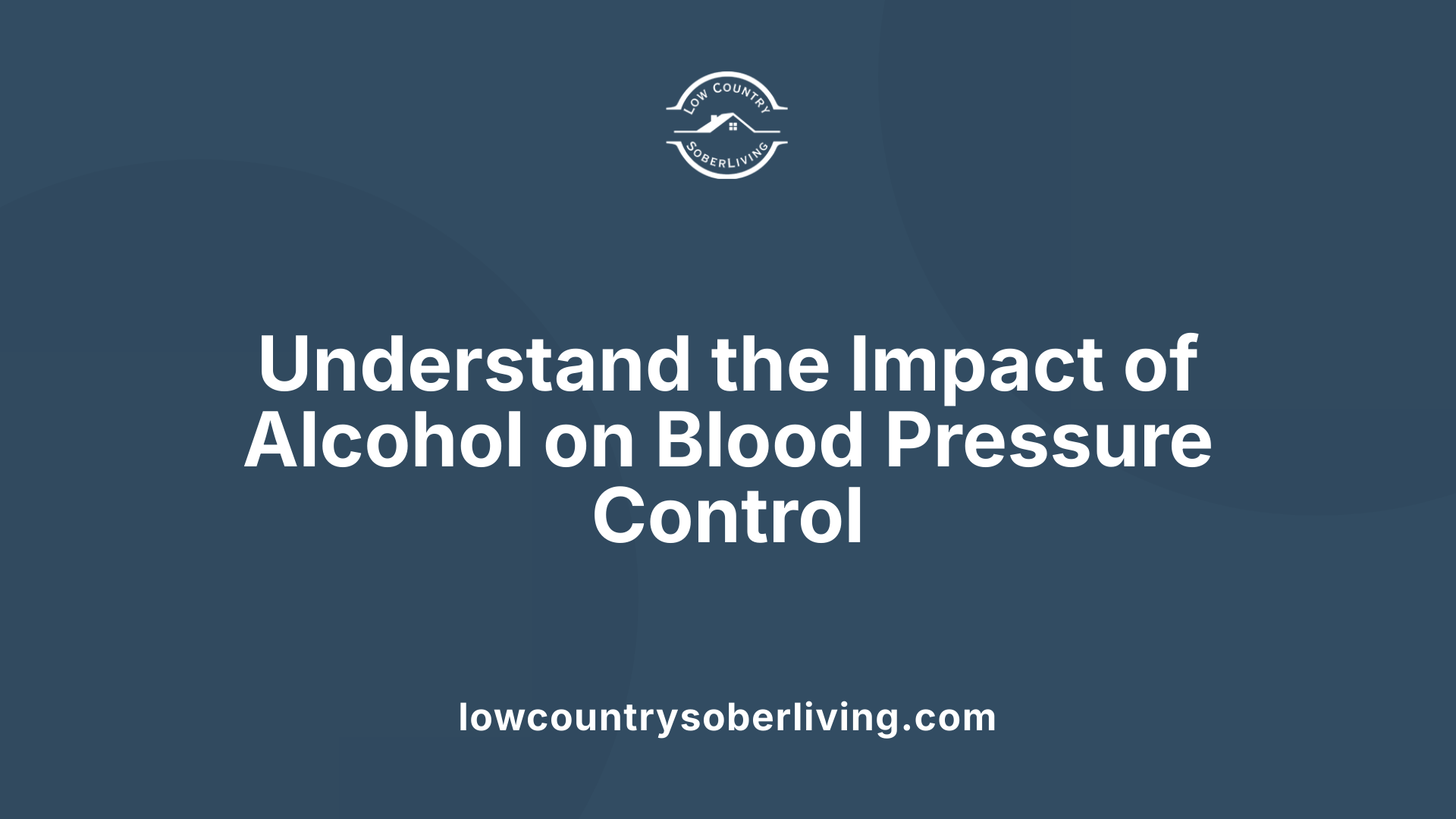
How does alcohol influence blood pressure?
Alcohol has a complex effect on blood pressure. In the short term, it can cause temporary rises or drops, which may counteract the purpose of medications like lisinopril that aim to control blood pressure levels.
When combined with lisinopril, alcohol can magnify the medication’s blood pressure-lowering effect, potentially leading to fainting, dizziness, or even shock. Conversely, heavy or binge drinking over time can increase blood pressure, making the medication less effective.
Maintaining stable blood pressure is vital for heart health and preventing complications such as stroke or heart attack. Modest alcohol consumption might be permissible for some individuals, but it must be done cautiously.
How is Lisinopril metabolized in the body?
Lisinopril, an ACE inhibitor, has a half-life of approximately 12 hours. This means it takes about 12 hours for half of the medication to be eliminated from your bloodstream.
The process involves the kidneys primarily, where the drug is excreted unchanged. Alcohol, on the other hand, is processed mainly in the liver and acts as a diuretic, increasing urine production and risking dehydration.
Combining alcohol with lisinopril can impact how quickly the drug is metabolized and removed, potentially altering its effectiveness and increasing side effects.
Could alcohol alter the effectiveness of Lisinopril?
Yes, alcohol can change how lisinopril works in your body in several ways. It may either enhance its blood pressure-lowering effect, increasing the risk of hypotension, or counteract its benefits by causing fluctuations in blood pressure levels.
Alcohol’s impact on liver function can impair the metabolism of lisinopril, possibly resulting in higher levels of the drug in the blood, which could lead to adverse effects.
Moreover, frequent alcohol intake may diminish the overall effectiveness of lisinopril in managing hypertension and heart conditions.
Important considerations
It is recommended to wait at least two to three days after taking lisinopril before consuming alcohol. This period allows the medication to be sufficiently cleared from your system.
However, even small amounts of alcohol can interfere with blood pressure control and increase the chance of side effects. Always consult your healthcare provider for personalized advice.
Most importantly, avoid heavy or binge drinking, and report any side effects such as dizziness, fainting, or unusual fatigue to your medical team.
| Aspect | Effect of Alcohol on Lisinopril | Additional Notes |
|---|---|---|
| Blood pressure influence | Can cause fluctuations (up or down) | May negate medication benefits |
| Metabolism | Alters in the liver, prolongs effects | Impact varies based on drinking amount |
| Effectiveness | Can reduce or enhance effect | Regular intake can impair blood pressure management |
| Side effect risk | Amplifies dizziness, fainting | Especially when starting therapy or after dose changes |
| Recommended wait time | 2-3 days after last dose | To reduce interaction risks |
Always seek advice from your healthcare provider regarding alcohol use while on lisinopril to ensure safe and effective treatment.
Risks and Adverse Effects of Mixing Alcohol and Lisinopril
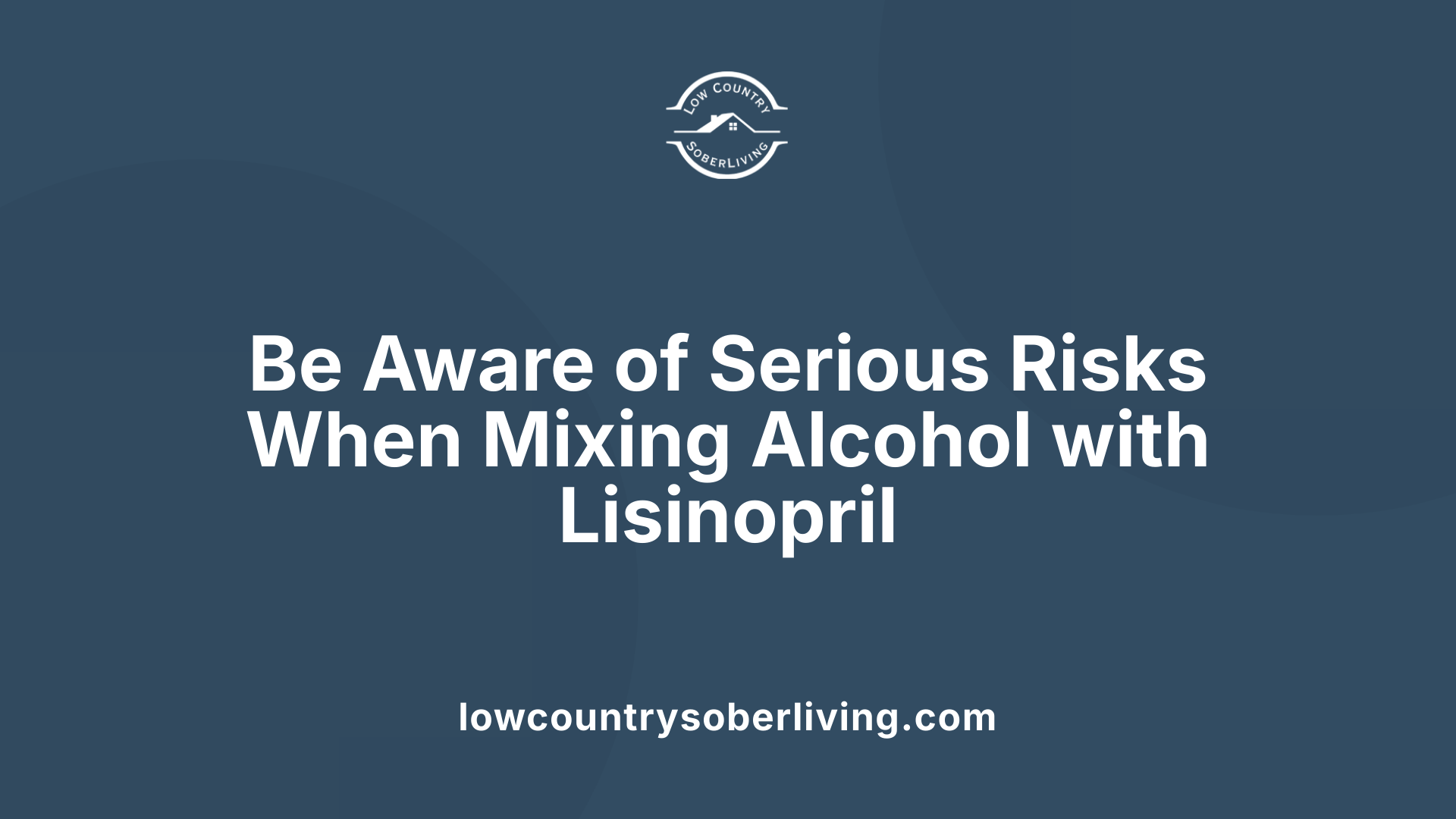
What are the potential risks and side effects of drinking alcohol while on Lisinopril?
Consuming alcohol while on Lisinopril can significantly increase the chances of experiencing adverse effects. Common issues include dizziness, lightheadedness, and fainting, which can cause falls and injuries, especially when standing up quickly. These effects occur because both alcohol and Lisinopril can lower blood pressure, sometimes to dangerous levels.
Although there is no direct chemical interaction between alcohol and the medication, alcohol can intensify Lisinopril’s blood pressure-lowering effects. This might result in dangerously low blood pressure, which can cause symptoms like confusion, weakness, or even shock. Additionally, alcohol may cancel out the medication’s ability to control high blood pressure effectively, potentially making treatments less successful.
Beyond blood pressure effects, drinking alcohol can worsen common side effects such as headache, nausea, fatigue, and dry cough. It can also increase the risk of serious reactions like angioedema, a severe swelling of the face, lips, and tongue, which requires immediate medical attention. Moreover, alcohol can impair liver and kidney functions, which are vital for metabolizing medications and maintaining overall health.
Overall, for individuals on Lisinopril, alcohol use is strongly discouraged due to the risk of exacerbating side effects and complicating health conditions. This is especially true for those with existing cardiovascular or kidney issues, where the risks of alcohol can be far more severe.
Are there more serious health concerns linked to alcohol and Lisinopril usage?
Yes, combining alcohol with Lisinopril can lead to serious health complications. Heavy or binge drinking heightens these risks by causing erratic fluctuations in blood pressure, which can stress and damage vital organs. This can lead to irregular heart rhythms (arrhythmias), which may be life-threatening.
Furthermore, alcohol impacts liver and kidney functions — organs involved in processing Lisinopril. Excessive alcohol intake can impair these organs, increasing the likelihood of liver damage and kidney problems.
Another grave concern is the potential development of angioedema. This allergic reaction involves swelling of the face, lips, tongue, and throat, which can obstruct breathing. Alcohol might increase the risk of such severe reactions, particularly in individuals with a history of swelling episodes or sensitivities to ACE inhibitors. Ultimately, these serious health issues highlight why alcohol consumption is highly inadvisable for those on Lisinopril, especially in large quantities or over long periods.
Precautions and Medical Advice on Alcohol Use During Lisinopril Therapy
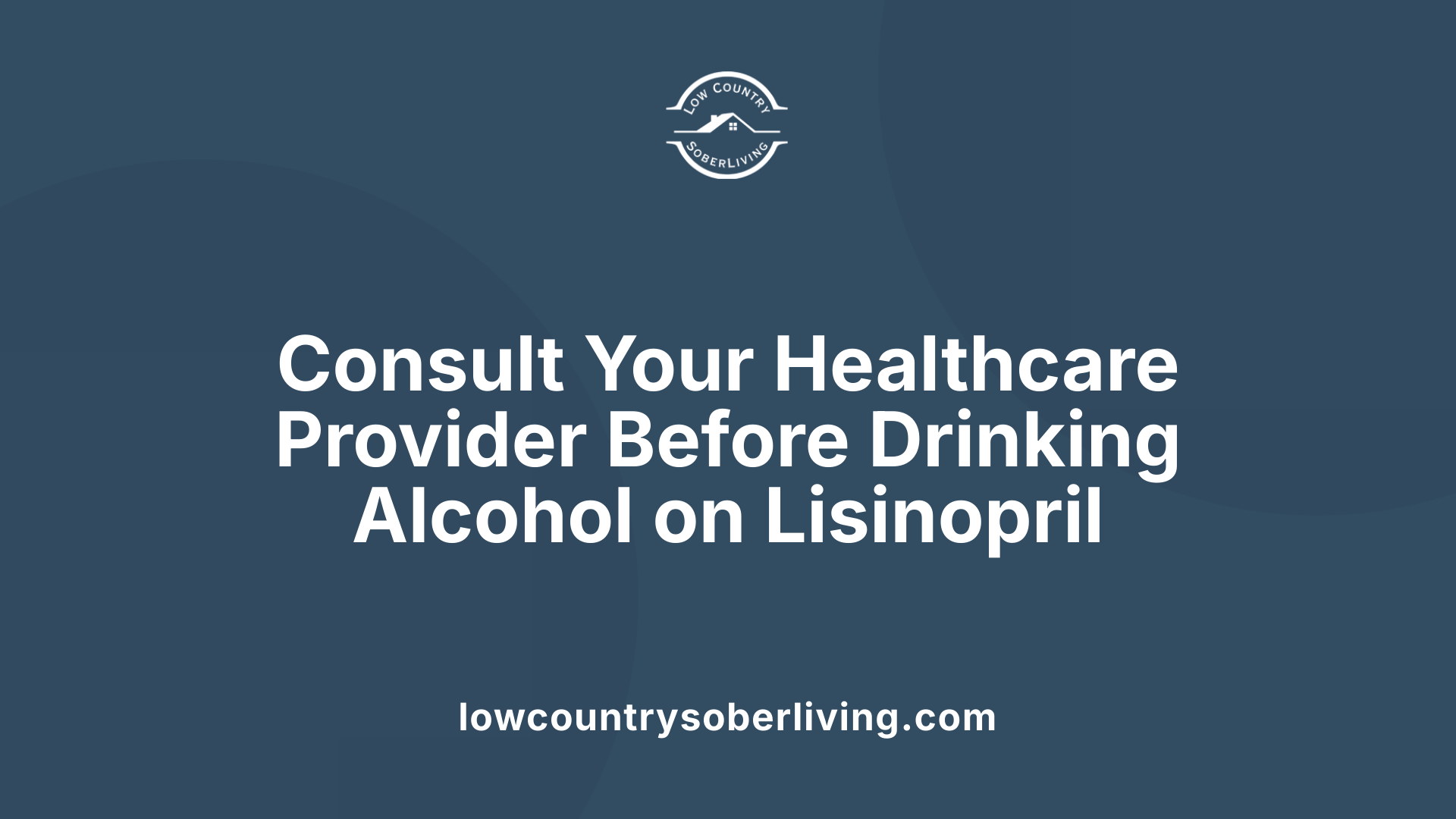
Importance of consulting healthcare providers
Patients prescribed lisinopril should consult their healthcare providers before consuming alcohol. Although lisinopril is effective for lowering blood pressure and treating heart and kidney conditions, alcohol can heighten the risk of side effects such as dizziness, fainting, and low blood pressure. These effects are especially prominent when starting treatment or after dose adjustments.
Alcohol acts as a depressant on the central nervous system and can interfere with the medication’s ability to regulate blood pressure effectively. Additionally, it may increase the likelihood of liver or kidney complications, as both substances impact these organs.
Given individual health status, medication dosage, and alcohol tolerance, medical professionals can provide personalized advice, which often includes abstaining from alcohol or limiting intake to a small amount.
Monitoring for side effects
While on lisinopril, patients should closely observe themselves for any adverse effects, particularly after consuming alcohol. Symptoms such as dizziness, blurred vision, lightheadedness, or feeling faint should not be ignored.
Heavy or binge drinking can cause blood pressure to fluctuate unpredictably, which might undermine lisinopril’s effectiveness and pose serious health risks. It is advisable to report any new or worsening symptoms to a healthcare provider immediately.
Monitoring includes regular blood pressure checks and blood tests to evaluate kidney function and electrolyte levels. Patients with pre-existing kidney or liver diseases should be extra cautious, as alcohol can exacerbate these conditions.
When to seek immediate medical help
Emergency medical assistance is necessary if you experience severe reactions such as swelling of the face, lips, or tongue (angioedema), difficulty breathing, chest pain, or loss of consciousness.
Warnings also include symptoms like severe headache, confusion, palpitations, or unusual fatigue, which could indicate dangerously low blood pressure or other critical reactions.
Immediate intervention can prevent life-threatening complications and should not be delayed.
Strategies for safe alcohol intake
While total abstinence is safest, some patients may consider moderate drinking with medical approval. If permitted, it is recommended to limit alcohol to no more than one standard drink per day for women and two for men.
Patients should wait at least 24 hours after taking lisinopril before consuming alcohol to allow the medication to be metabolized adequately. Keeping track of how alcohol affects individual responses is crucial.
Additionally, it is wise to avoid alcohol if one experiences any side effects from lisinopril or if feeling unwell. Hydration, moderation, and adherence to prescribed dosages are vital.
In summary, open communication with healthcare providers, careful monitoring, and cautious alcohol consumption are essential to ensure safety during lisinopril therapy.
Is Drinking Alcohol Safe on Blood Pressure Medications?
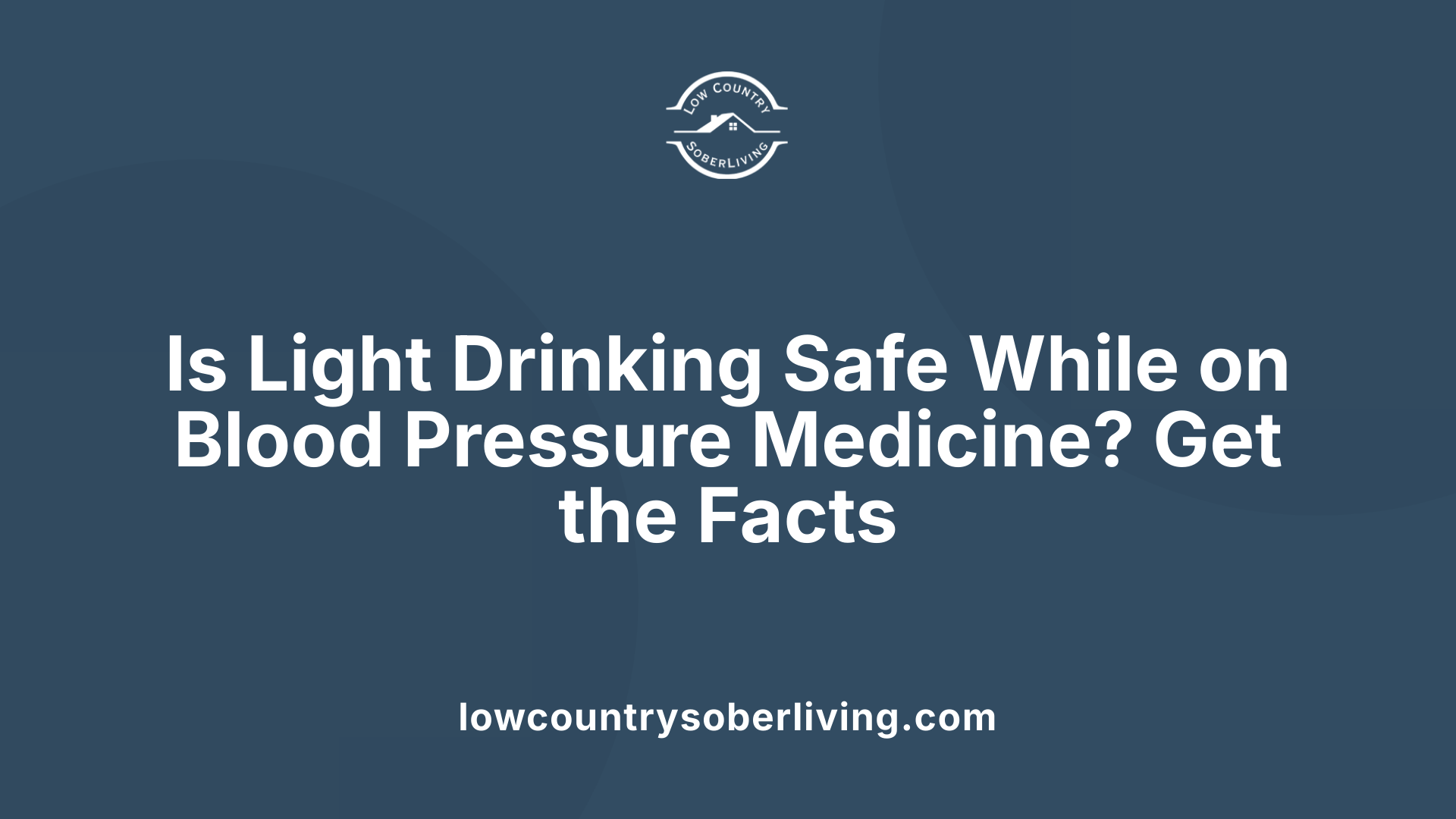
Is it safe to drink alcohol while on blood pressure medication like Lisinopril?
It is generally not safe to drink alcohol while taking blood pressure medications like Lisinopril. Alcohol can interfere with the effectiveness of the medication and boost the risk of serious side effects. When combined, alcohol may cause blood pressure to drop too low, leading to dizziness, fainting, and imbalance, which can result in falls or injuries.
In addition, alcohol can worsen common side effects of Lisinopril, such as dizziness, fatigue, and headaches. More severe problems like irregular heart rhythms, kidney issues, and liver complications are also possible. While some individuals might consider moderate drinking acceptable, doing so without medical supervision can be risky.
To stay safe, it is best to avoid alcohol while using Lisinopril. If you choose to drink, consult your healthcare provider to understand your personal risks and receive tailored advice.
What constitutes moderate alcohol consumption in this context?
Moderate alcohol intake usually means up to one drink per day for women and up to two drinks per day for men, according to general health guidelines. However, these guidelines may not apply to individuals on medications like Lisinopril.
Because of how alcohol can affect blood pressure and interact with medications, your healthcare provider can help you decide what level of drinking, if any, is safe. It's important to always follow medical advice to prevent adverse health effects.
General safety tips
- Always consult your healthcare provider before drinking alcohol while on blood pressure medication.
- Be aware of how alcohol affects your blood pressure and side effects.
- Avoid binge drinking or heavy alcohol use.
- Monitor yourself for symptoms like dizziness, lightheadedness, or irregular heartbeat.
- Consider abstaining from alcohol to prevent potential risks.
Moderation and medical supervision
When healthcare providers permit moderate drinking, it’s essential to stay within recommended limits and keep open communication about how alcohol affects you.
Regular check-ups can help gauge whether alcohol consumption is safe alongside your medication.
Difference between moderate and heavy drinking
Moderate drinking generally involves limited daily alcohol intake with awareness of individual health factors. Heavy or binge drinking, however, involves excessive alcohol consumption over a short period and is especially harmful for those on blood pressure medications. It can lead to sudden spikes in blood pressure, dehydration, and increased strain on the heart and kidneys.
Avoiding heavy drinking altogether is advised for anyone on blood pressure medications like Lisinopril to maintain optimal health and medication efficacy.
| Aspect | Moderate Drinking | Heavy Drinking | Implications for Blood Pressure Medications |
|---|---|---|---|
| Definition | Up to 1 drink/day (women), 2 drinks/day (men) | Binge or excessive drinking | Increased risk of blood pressure fluctuations and side effects |
| Health Risk | Usually low if within limits | High; risk of health complications | May negate medication benefits and cause adverse effects |
| Best Practice | Consult healthcare provider | Avoid or limit as much as possible | To prevent dangerous interactions and health risks |
Search Query: alcohol and blood pressure medicines safety tips
Remaining cautious with alcohol while on medications like Lisinopril helps protect your health and ensures proper management of your condition.
Strategies to Minimize Risks if Drinking Alcohol on Lisinopril
How can I reduce risks if I choose to drink alcohol while on Lisinopril?
If you plan to drink alcohol while taking Lisinopril, it is crucial to proceed cautiously to avoid dangerous side effects. Limiting your alcohol intake to moderate levels—up to one drink per day for women and two for men—is advisable.
Monitoring your symptoms is essential. Watch for signs of dizziness, feeling faint, or low blood pressure, especially during the first few days of starting Lisinopril or after increasing the dose. These symptoms can worsen when alcohol is involved.
It is best to avoid alcohol completely during the initial treatment period or when your dosage has recently been adjusted. This helps prevent unpredictable blood pressure fluctuations and adverse reactions.
Prior to drinking, always consult your healthcare provider. They can offer personalized guidance based on your overall health, medication regimen, and alcohol consumption habits.
If you experience symptoms such as severe dizziness, chest pain, or swelling after drinking, stop immediately and seek medical attention. Following these strategies can help reduce the risk of severe complications while allowing you to enjoy moderate alcohol consumption responsibly.
Conclusion and Final Recommendations
What is the main takeaway regarding alcohol and Lisinopril?
The primary message is that combining alcohol with Lisinopril can pose significant health risks. Alcohol can cause unpredictable fluctuations in blood pressure, intensify side effects such as dizziness and fainting, and potentially damage vital organs like the liver and kidneys. Consuming alcohol while on Lisinopril is generally unsafe, and it's best to avoid it or seek medical advice to understand individual risks. Staying vigilant and cautious helps ensure both safety and the effectiveness of the medication.
Why is medical consultation important?
Consulting a healthcare professional before drinking alcohol during Lisinopril treatment is essential. A doctor can assess your specific health conditions, history of cardiovascular or kidney issues, and potential drug interactions. They provide personalized guidance, help manage side effects, and prevent dangerous health complications. Professional advice ensures that you adhere to safe practices, effectively manage your blood pressure, and avoid unnecessary risks.
Benefits of abstinence or moderation
Abstaining from alcohol completely while taking Lisinopril guarantees the lowest risk of adverse effects and allows the medication to work effectively. However, if you choose to drink, doing so in moderation—generally up to one or two drinks per day, depending on individual health—is crucial. Always follow your healthcare provider’s recommendations, monitor how your body responds, and be prepared to adjust your drinking habits accordingly.
| Aspect | Recommendation | Why it Matters |
|---|---|---|
| Drinking alcohol | Avoid or consult | Reduces risk of blood pressure fluctuations and organ damage |
| Regular medical check-ins | Yes | Ensures ongoing safety and medication efficacy |
| Moderate alcohol intake | Possible with caution | Minimize adverse effects while enjoying social drinking |
| Recognizing symptoms | Seek immediate care for chest pain, swelling, or severe reactions | Prevents life-threatening complications |
For comprehensive advice, searching for "final advice on alcohol and blood pressure meds" can provide additional guidance tailored to your specific situation, but always prioritize professional medical input before making changes.
Prioritizing Safety and Well-Being
In conclusion, while moderate alcohol consumption may be possible for some individuals on Lisinopril, the safest approach is to avoid alcohol altogether or seek medical advice before drinking. The risks associated with alcohol and blood pressure medications can be significant, including fainting, organ damage, and reduced medication efficacy. Prioritizing health, following healthcare provider guidance, and being cautious can help ensure the best outcomes during hypertension treatment.
References
- Lisinopril and Alcohol: Breaking Free of a Dangerous Cycle
- Lisinopril and Alcohol: Interactions, Effects & Risks
- Can I Drink Alcohol While Taking Blood Pressure Medicine Like ...
- Common questions about lisinopril - NHS
- Lisinopril and Alcohol: Interactions and Side Effects to Know - K Health
- Lisinopril and Alcohol/Food Interactions - Drugs.com
- Lisinopril and alcohol: Interaction and side effects - SingleCare

